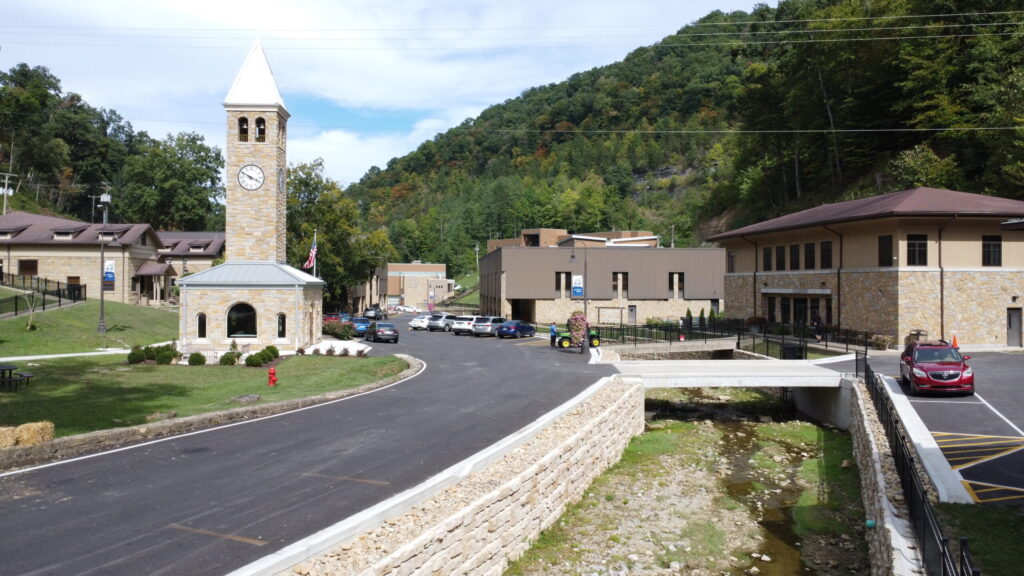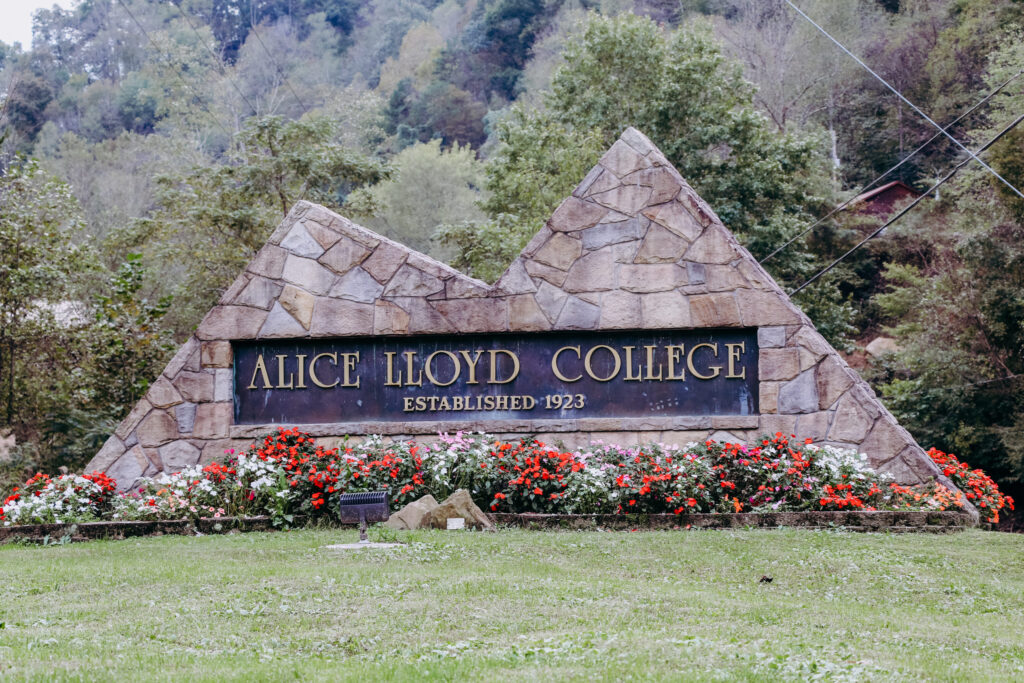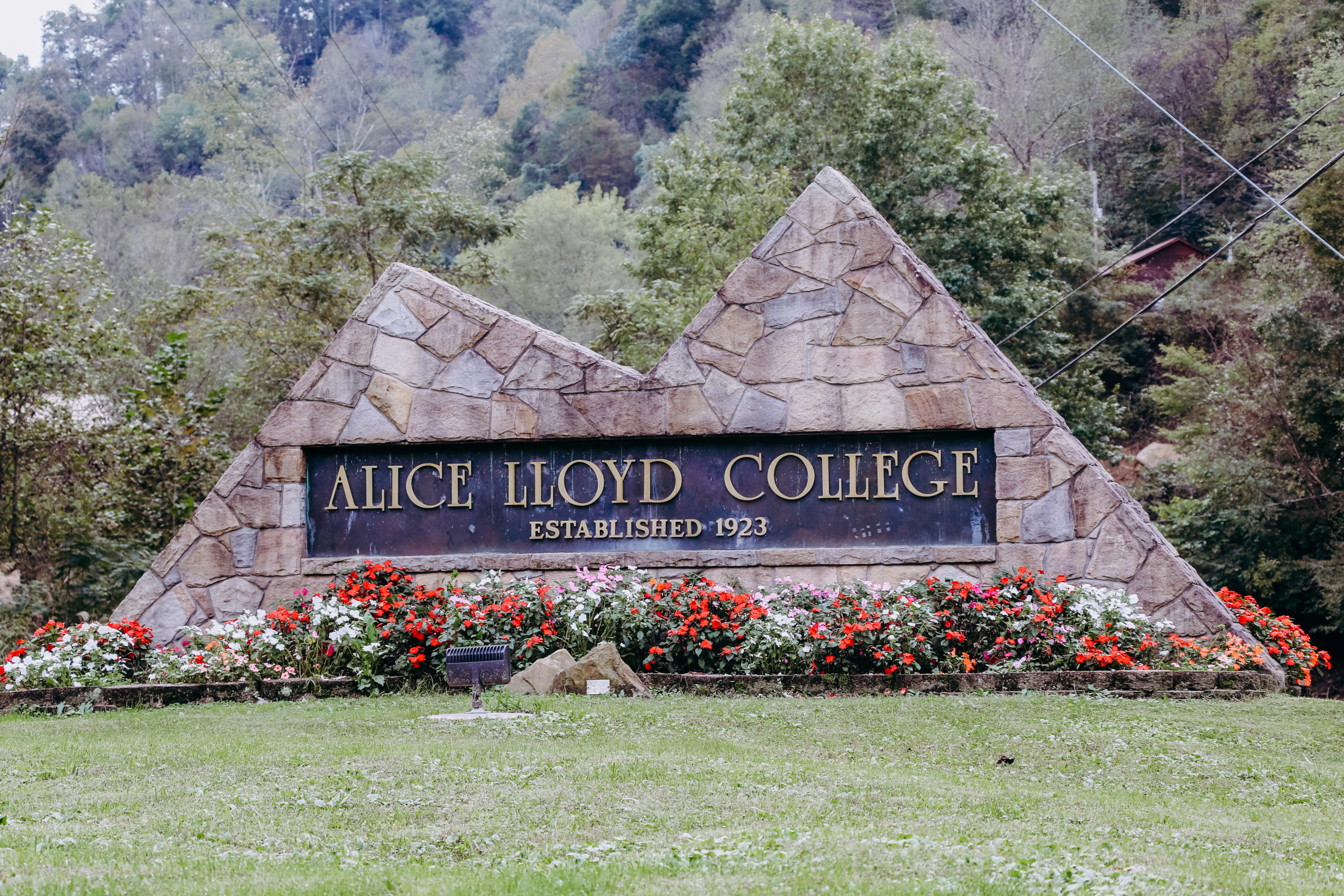Alice Lloyd College: A Beacon of Opportunity in Appalachia
Introduction
Nestled in the rolling hills of Pippa Passes, Kentucky, Alice Lloyd College (ALC) stands as a testament to the transformative power of education. Founded in 1923 by journalist and social reformer Alice Spencer Geddes Lloyd, alongside co-founder June Buchanan, this private, four-year liberal arts institution has dedicated itself to providing high-quality education to students in the Central Appalachian region, regardless of their financial circumstances. With a mission rooted in Christian values, leadership development, and community service, ALC has become a cornerstone of opportunity for generations of Appalachian youth. This article explores the history, mission, academic offerings, student life, and impact of Alice Lloyd College, highlighting its unique role in shaping leaders for Appalachia and beyond.

Historical Roots and Founding Vision
Alice Lloyd College traces its origins to a bold vision: to educate the youth of Appalachia and cultivate leaders who would serve their communities. Alice Lloyd, a native of Cambridge, Massachusetts, arrived in Kentucky’s Knott County in 1916, driven by a desire to address the region’s educational and social challenges. At the time, Eastern Kentucky was marked by poverty, limited access to education, and geographic isolation. Lloyd saw education as the key to breaking the cycle of poverty and empowering the region’s people.
Initially named Caney Junior College, the institution began as a community center offering basic education and vocational training. Lloyd and Buchanan, a New York native, worked tirelessly to establish schools across Eastern Kentucky, eventually founding over 115 elementary and high schools. Their efforts laid the groundwork for what would become Alice Lloyd College, a bachelor’s degree-granting institution by the early 1980s. The college’s founding philosophy, known as the “Purpose Road Philosophy,” emphasizes service to others, self-reliance, and moral integrity—values that continue to guide ALC today.
The Work College Model: Education Without Debt
One of Alice Lloyd College’s most distinctive features is its status as a work college, one of only nine four-year work-study colleges in the United States. Under the Appalachian Leaders College Scholarship, full-time students from 108 counties across Kentucky, Ohio, Tennessee, Virginia, and West Virginia attend tuition-free, a policy that reflects ALC’s commitment to accessibility. To offset costs, every student is required to work at least 10 hours per week in campus jobs, such as janitorial staff, office assistants, tutors, or cafeteria workers. This work-study program not only makes education affordable but also instills a strong work ethic and practical skills that prepare students for professional life.
Unlike many institutions that rely heavily on federal or state funding, ALC operates independently, using endowments, donations, and its work-study model to sustain its mission. In 2022, 100% of ALC students received financial aid through grants, and 52% took out loans averaging $4,015 annually, resulting in a total debt of approximately $16,060 over four years—significantly lower than the national average of $24,000. The college’s commitment to minimizing student debt has earned it recognition from U.S. News and World Report as the “Top College in the Nation for Graduating Students with the Least Amount of Debt.”
Academic Excellence and Program Offerings
Alice Lloyd College offers a robust liberal arts education, with 18 major degree programs and eight pre-professional programs designed to prepare students for leadership roles in Appalachia and beyond. The college awards Bachelor of Arts and Bachelor of Science degrees in fields such as:
- Accounting and Business Management
- Biology (with pre-professional tracks in Dentistry, Medicine, Pharmacy, and more)
- Elementary Education (P-5)
- English
- History
- Kinesiology
- Sociology
- Sports & Fitness Programs Management
The pre-professional programs cater to students pursuing advanced degrees in fields like law, medicine, and engineering, with 95% of ALC graduates accepted into graduate or professional schools. The college’s small student-to-faculty ratio of 14.5:1 and average class size of 18 foster personalized learning and close mentorship, allowing students to engage deeply with their professors, many of whom hold degrees from prestigious institutions like Harvard, Yale, and Cornell.
ALC’s Teacher Education Program is particularly noteworthy, reflecting the college’s historical commitment to preparing educators for Appalachian schools. The program offers certification in elementary, middle, and high school education, with emphases in subjects like English, mathematics, and social studies. Faculty members, such as Dr. Katrina Slone and Dr. Steve Herr, bring extensive experience and a passion for mentoring future educators, ensuring graduates are equipped to serve their communities.
The college’s academic rigor is complemented by opportunities for hands-on learning. Students can study abroad, intern in Washington, D.C., or participate in mission trips to Central America, broadening their perspectives and enhancing their resumes. The Business & Technology Center, dedicated in 2009, houses the business program, while the McGaw Library and Learning Center provides state-of-the-art resources for research and study.
Student Life and Campus Culture
With a total undergraduate enrollment of 553 (fall 2023), Alice Lloyd College offers an intimate, community-oriented campus experience. The 175-acre rural campus in Knott County provides a serene backdrop for academic and personal growth, though some students note the challenge of its remote location, which can limit off-campus activities. Despite this, ALC fosters a vibrant student life through clubs, organizations, and athletic programs.
Residence Life and Campus Policies
Approximately 600 students live in gender-separated dormitories, with rental costs averaging $1,900 annually. The college enforces strict policies, including a dry campus (Knott County is a dry county, prohibiting alcohol) and gender-specific dorm access limited to designated “open houses” after room checks. Professional dress is required on central campus every Tuesday until 2:00 p.m. and during convocation programs, reflecting ALC’s emphasis on professionalism and discipline. These policies, rooted in the college’s Christian values, create a structured environment that some students find nurturing, while others may find restrictive.

Student Organizations and Events
ALC’s Student Government Association (SGA), Voices of Appalachia Choir, and various academic and service-oriented clubs provide opportunities for leadership and camaraderie. The college hosts numerous events, such as the annual Appalachia Day Homecoming, Trunk-or-Treat for the local community, and the Honors Day Awards Ceremony, which celebrates academic and extracurricular achievements. In 2024, the Honors Day event recognized students like Justin Witt (James V. Mongiardo Speech Award) and Madison Ward (George I. Alden Scholarship) for their excellence.
The Perry Campus Center, completed in 2020, serves as a hub for recreation and community engagement, with a 1,500-seat capacity for events. The Eagle’s Nest, housing the WWJD-FM radio station, and the Founder’s Shack, a historical landmark, add to the campus’s unique character.
Athletics and School Spirit
The ALC Eagles compete in the National Association of Intercollegiate Athletics (NAIA) River States Conference and the National Christian College Athletic Association (NCCAA). The college fields teams in 15 intercollegiate sports, including men’s baseball, basketball, and soccer, and women’s volleyball, softball, and cheerleading. Club sports like bass fishing and eSports further engage students. Athletic achievements, such as the 2024 men’s basketball victory over Roberts Wesleyan University, foster school pride.
Community Impact and Recognition
Alice Lloyd College’s impact extends far beyond its campus. The college’s mission to produce leaders who return to serve Appalachia has yielded impressive results: 75% of ALC graduates are the first in their families to earn an undergraduate degree, and many pursue careers in education, healthcare, and public service in the region. The Caney Cottage Scholarship supports graduates attending graduate or professional schools, requiring them to return to Appalachia to apply their skills, ensuring a cycle of community reinvestment.
ALC has received national recognition for its affordability, selectivity, and financial health. U.S. News and World Report ranked ALC #47 among Regional Colleges South in 2025, while Forbes awarded it an A- financial grade in 2024, placing it second in Kentucky. The college’s $57.1 million endowment, bolstered by a $10 million gift from The Bill Gatton Foundation in 2024, supports its long-term sustainability.
The college’s commitment to service is evident in initiatives like the Mission of Hope partnership, which provides scholarships and resources to students, and the annual blood drives organized by the SGA. Events like the Alumna and Alumnus of the Year Banquet honor graduates like Kathy Ellen Stumbo and Dr. Anthony Clark Stumbo, who exemplify ALC’s values of leadership and service.
Challenges and Opportunities
Despite its successes, Alice Lloyd College faces challenges. Its rural location can pose logistical difficulties for students seeking off-campus opportunities, and the lack of majors like psychology or political science limits academic diversity. The college’s selective admission process (98% acceptance rate but rigorous interview requirements) and modest graduation rate (40%) suggest room for improvement in student retention and completion. Additionally, the freshmen retention rate of 56% indicates that some students may struggle to adjust to ALC’s unique environment.
However, these challenges are met with proactive efforts. Infrastructure improvements, such as the creek bank project and campus repaving, enhance the student experience. The college’s focus on character development, supported by Christian principles, fosters resilience and purpose, as evidenced by student testimonials praising the supportive faculty and tight-knit community.
Looking forward, ALC aims to expand its academic offerings and strengthen its graduate school partnerships, such as the Caney Cottage program at the University of Kentucky. By leveraging its endowment and national recognition, the college is well-positioned to continue its mission of educating Appalachian leaders.
Conclusion
Alice Lloyd College is more than an institution of higher learning; it is a beacon of hope for the Appalachian region. Through its tuition-free model, work-study program, and commitment to Christian values, ALC empowers students to overcome financial and geographic barriers, equipping them with the education and character needed to lead. Its small size, dedicated faculty, and vibrant campus life create an environment where students can thrive academically and personally. As ALC approaches its centennial, it remains steadfast in its mission to produce leaders who will uplift Appalachia and beyond, proving that education, when paired with purpose, can change lives and communities.
